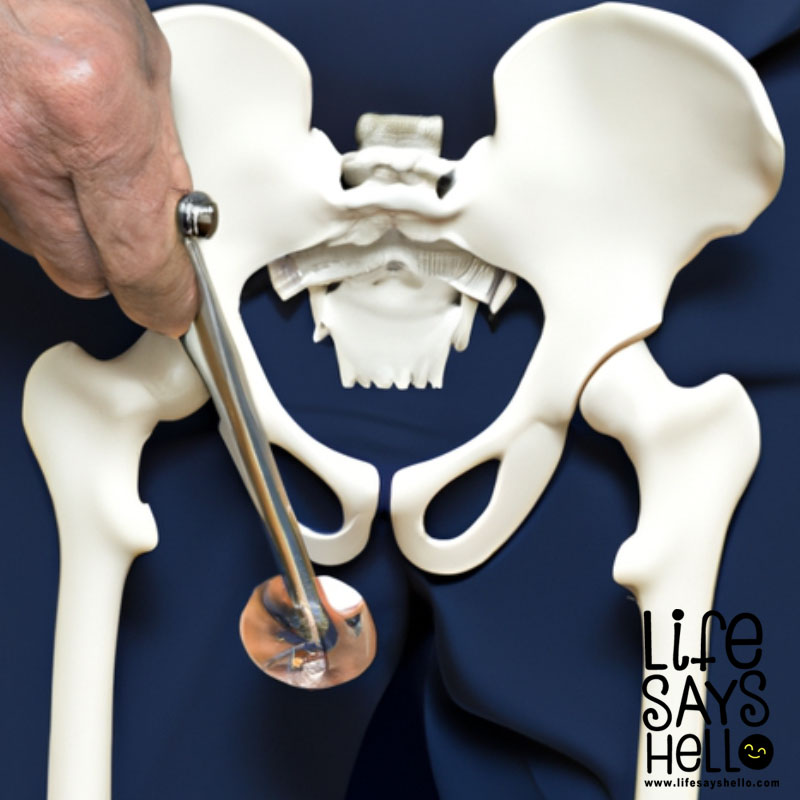Why Do I Feel So Numb? Uncovering the Causes of Emotional Numbness and What You Can Do

Feeling emotionally numb or devoid of feelings can be an unsettling and distressing experience. You may feel disconnected, like you’re observing life from behind a pane of glass. Everything may seem dull and lifeless. This article will explore the common causes of emotional numbness and what you can do to start feeling connected again.
Many factors can contribute to feeling emotionally numb. Pinpointing potential causes can help you find the right treatment and solutions. Here are some of the most common reasons you may be feeling detachment from your emotions:
Depression and Anxiety Can Cause Emotional Numbing
Mental health conditions like depression and anxiety are frequently associated with feeling emotionally numb or empty. The deep feelings of persistent sadness or constant worry can seem to just fade into the background when you have lived with these conditions for a long time.
Research shows there is often a link between depression and reduced emotional intensity. Fluctuating serotonin levels in the brain play a role here. Serotonin helps regulate your mood, sleep, appetite, and cognitive functions. Low serotonin is tied to depression symptoms.
Some of the most commonly prescribed antidepressants work by increasing available serotonin in the brain. These selective serotonin reuptake inhibitors (SSRIs) can help relieve emotional numbness by normalizing neurotransmitter levels.
Anxiety can also be tied to emotional numbness in some people. The constant state of worry, panic, and fear can leave you feeling drained. Over time, you may build up an emotional tolerance and stop responding to anxiety-inducing situations as strongly.
Treating underlying mental health conditions like depression and anxiety allows emotions to surface again. Psychotherapy and medication are often used together to relieve symptoms.
High Stress Levels and Cortisol Changes Can Blunt Your Emotions
Have you noticed the more stressed you feel, the number you become emotionally? There is a scientific reason behind this. Prolonged or repeated stress in your life activates the body’s hormonal stress response.
The hormones epinephrine and cortisol are released to prepare the body to take action against a threat. Cortisol boosts your energy, suppresses non-essential functions, and focuses you on dealing with the danger at hand.
While this can be helpful for short bursts of stress, extended high cortisol levels take a toll. Emotional numbness can set in. Studies show elevated cortisol directly inhibits activity in the brain’s emotion processing centers.
Stress management techniques help lower cortisol. Relaxation practices like yoga, deep breathing, and meditation give your body a chance to calm down. Taking breaks, getting exercise, and ensuring you get enough sleep also helps regulate stress hormone levels.
PTSD Can Lead to Detachment from Your Emotions
Post-traumatic stress disorder (PTSD) has been linked to emotional numbness or blunting in some individuals. The traumatizing event rewires the brain’s fear circuitry. Caught in a state of hyperarousal, people with PTSD often feel disconnected from themselves and others.
PTSD causes dysregulation in numerous hormone systems involved in the stress response. Cortisol changes are common, as well as impairment of oxytocin, the “love hormone” tied to bonding and social connection. Emotional numbness may be the brain’s way of protecting itself from reliving the trauma.
PTSD treatment often initially focuses on coping strategies and stabilizing intense emotions. As symptoms improve, reconnecting with muted emotions typically becomes an important goal. Treatment methods like trauma-focused cognitive behavioral therapy can help safely process and integrate traumatic memories.
Abusing Substances Can Lead to Addiction and Emotional Blunting
Substance abuse and addiction frequently cause or exacerbate emotional numbness. Alcohol, prescription medications, street drugs - all of these can blunt your emotions or make you feel detached from reality.
Some substances directly impact neurotransmitters like serotonin and dopamine, throwing off healthy emotional processing. Others trigger the brain’s reward system, leaving you constantly chasing a high. Over time, everyday pleasures no longer feel as satisfying.
Substances also often become a means of emotional avoidance. Numbing out feels easier than facing painful issues or memories. But eventually, emotional numbness sets in, along with depression and loss of interest when sober.
Getting sober and entering addiction treatment helps the brain heal and reconnect. Therapy provides tools to process difficult emotions in a healthy way. Peer support groups reinforce staying substance-free.
Avoiding or Suppressing Emotions Can Cause Numbness
If you go through life constantly pushing down your feelings, emotional numbness can take hold. Avoiding vulnerability and painful emotions takes its toll over time. You lose touch with the full range of human emotion and what gives life meaning.
This type of emotional numbness is the mind’s way of protecting you from distress. But it leaves you feeling closed off and detached from others and activities you once enjoyed. Relief comes when you allow yourself to start feeling again.
Processing and expressing emotions, rather than avoiding them, prevents this detachment. Letting yourself cry when sad or lean on others when hurt fosters emotional well-being. You stay connected to joyful emotions too through laughter and authentic human interactions.
Brain Injury, Neurological Problems and Hormones
Traumatic brain injury and certain neurological conditions like Alzheimer’s or Parkinson’s disease can impair emotional processing. Damage to key brain areas disrupts connections that enable you to feel and respond to emotions.
Hormonal issues like thyroid problems, menopause, or hormonal birth control can also numb emotions in some individuals. Estrogen, progesterone, thyroid hormones, and others influence serotonin, GABA, dopamine and other mood-regulating neurotransmitters.
Getting a thorough medical workup can identify if any underlying medical issues or hormone imbalances are contributing to your numbness. Treatment and medication may help restore neural connections and get hormone levels back on track.
How to Tell if Your Emotional Numbness Points to Mental Health Issues
Feeling emotionally numb is often not “just” numbness. It can be a sign of more serious mental health conditions. Here are some clues that the emptiness you feel may be linked to a psychological disorder:
You Feel Disconnected from Yourself and Others
Healthy social interaction involves sharing thoughts, feelings, and experiences. But if you are emotionally numb, you may feel cut off from these exchanges. Social events can seem pointless if you are unable to meaningfully participate.
Your sense of self can also become dulled when feelings are blocked off. You may struggle to define your wants, needs, and reactions. Without access to your emotions, it can be hard to know what matters most.
This feeling of disconnection from loved ones and your core identity goes beyond normal introversion. It signifies that numbness may not be temporary but instead tied to mental health issues.
You Can’t Connect Emotionally with Others
Forming meaningful bonds and relationships hinges largely on emotional connection. If you have always struggled to pick up on others’ nonverbal cues like facial expressions or body language, mental health conditions may be interfering.
You may also have trouble expressing empathy for what friends or family are going through. Without access to a full range of emotions, it’s difficult to understand and share others’ emotional experiences.
This inability to read others and reveal your inner emotional world to them points to problems with emotional processing. Therapeutic treatment can identify if mental illness is the cause and provide skills to improve emotional relating.
You’ve Lost Interest in Activities You Used to Enjoy
When you no longer get fired up about hobbies and interests that previously brought you joy, it’s a red flag. Feeling indifferent about activities that should be pleasurable is often associated with depression.
The same is true if you have no motivation to make plans or engage with life. just getting through each day takes all your effort. An emotionally numb fog has settled in where excitement or fun used to be.
Lack of enthusiasm and loss of interest signal your emotional experience of life has narrowed. This emotional restriction very likely reflects changes in brain processes that may benefit from mental health treatment.
You Feel Nothing Even in Intense Situations
Normally when something significant occurs, whether positive or negative, you would expect to have an emotional response. But if you are emotionally numb, you may react with a blank detachment even to major life events.
For example, milestone moments like weddings or funerals fail to move you. Bad news doesn’t prompt sadness or anger. Joyful announcements don’t make you smile and celebrate. Your emotional circuits seem stuck indefinitely on neutral.
This lack of emotional reactivity even in highly-charged situations points to a concerning loss of connection with natural human feelings. Counseling and therapy can help you begin to engage with and process significant life events.
You Feel You Have No Emotions Whatsoever
Believing you are completely devoid of any emotions is a clear indication of emotional numbness at its most severe. You may feel like an indifferent robot just going through the motions each day.
This feeling of being “emotionless” - rather than just feeling specific emotions muted - reflects near total emotional detachment from yourself and the world around you.
Thoughts of self-harm or suicide often accompany this extreme disconnection. Restoring access to emotions becomes an urgent priority through intensive psychiatric treatment and therapy.
Seeking Help for Emotional Numbness
If you see aspects of your own experience with emotional numbness in the discussion above, know that you are not alone. And help is available to start feeling connected and vibrant again.
Getting evaluated by a qualified mental health practitioner is recommended if numbness persists. They can assess if you meet diagnostic criteria for conditions like depression or PTSD that require treatment.
Based on your symptoms and history, your therapist may refer you to a psychiatrist as well. Meeting with both provides comprehensive care - talk therapy plus medication if helpful.
Medications that increase serotonin, like SSRIs or SNRIs, are often prescribed for emotional numbness alongside depression and anxiety. Relieving other mental health symptoms can allow you to open up emotionally again.
Your therapist will also work with you on processing emotions in a healthy way. No more bottling them up or avoiding pain. You build skills to express all emotions and ask for support when needed.
Peer support groups can also assist with emotional transformation. Sharing coping strategies and understanding you are not alone is powerful. Continuing mental health care ensures when numbness lifts, it stays lifted.
Steps to Take Now to Help Yourself Feel Again
While seeking professional help, there are positive steps you can take on your own to relieve emotional numbness:
Exercise and Get Active
Exercise kick starts neurochemical processes that counteract emotional numbness. It spurs the release of feel-good endorphins and serotonin that are suppressed when you are depressed.
Even minimal physical activity like walking 10-15 minutes per day can make a difference. Yoga in particular can be calming yet energizing. The key is to simply get moving, even if you have low motivation.
Talk to Someone You Trust
Speaking about what you’re going through and releasing pent-up feelings lessens their grip. Silence and isolation reinforce numbing; connection and expression invite healing.
A friend who just listens without judgement can be invaluable. Sharing vulnerabilities or asking for a hug when hurting fosters emotional closeness. Consider joining a support group too.
Try Mindfulness Practices
Meditation, deep breathing, and grounding techniques bring you into the present moment to help you tune into suppressed emotions and unmet needs.
Apps like Calm, Headspace, and Insight Timer offer excellent guided mindfulness practices. Even 5 minutes of deep breathing when feeling numb can reset your nervous system.
Make Sleep a Priority
Emotional numbness is exacerbated by sleep deprivation. Lack of sleep hampers the restoration work your brain does during rest to consolidate memories and process emotions.
Aim for 7-9 hours of quality sleep per night. Turn off screens an hour before bed. Limit caffeine after 2 pm. A soothing pre-bed routine helps ready your body for sleep.
Conclusion
Living in an emotional fog is draining and keeps you from experiencing life fully. But there are almost always underlying causes explaining numbness - and treatments available. Taking steps to identify why you feel detached is the first move toward reconnecting with your feelings.
While awaiting professional help, self-care basics like exercising, talking to supportive people, meditating, and catching up on sleep can start lifting the haze. You can regain access to the spectrum of human emotions that gives life meaning. You deserve to feel again.




Comments